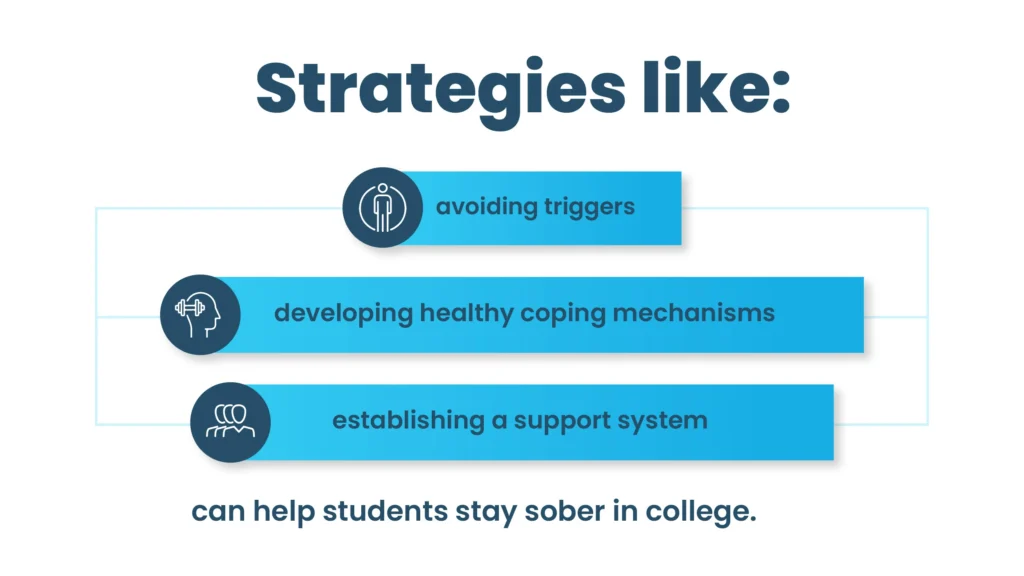College students face numerous challenges as they navigate their academic and social lives. For some, these challenges may lead to the development of substance abuse and addiction.
Addiction can devastate a student’s academic performance, mental health, and relationships. Recognizing the unique needs of college students, addiction treatment programs have been designed to cater specifically to this population.

These programs offer a variety of resources and support systems to help college students overcome addiction and regain control of their lives. This article will explore the different addiction treatment options available to college students and how they can help them recover.
Contact The Haven Detox-Little Rock to overcome your addiction and live a healthy life.
Key Takeaways
Addiction is a serious issue among college students. Seeking help and treatment is crucial for their physical and mental health and academic and personal success.
- Personalized addiction treatment for college students is crucial and should include evidence-based practices such as cognitive behavioral therapy.
- Strategies like avoiding triggers, developing healthy coping mechanisms, and establishing a support system can help students stay sober in college.
- Balancing academics and addiction treatment can be achieved by planning.
- Effective addiction treatment plans may include outpatient treatment, rehab, and inpatient treatment programs depending on the individual’s needs.
The Haven Detox-Little Rock offers effective addiction treatment services for college students. Call us at (501) 271-3342 to get more details about our treatment programs.
Warning Signs and Symptoms of Addiction Problem in College Students
College can be stressful for many students, and it’s not uncommon for some to turn to drugs or alcohol to cope with the pressure. Unfortunately, substance abuse can quickly spiral out of control, leading to addiction.
Addiction is a complex disease that can seriously affect a person’s physical and mental health and academic and personal life. Read more to explore the warning signs and symptoms of addiction in college students.
Change in Behavior
A behavior change is one of the most significant warning signs of addiction in college students. Students who were once outgoing and sociable may become withdrawn and isolated. They may also lose interest in activities they previously enjoyed, such as hobbies or sports. Additionally, they may neglect their responsibilities, such as attending classes or completing assignments.
Decline in Academic Performance
Another common symptom of addiction in college students is a decline in academic performance. Students struggling with addiction may have difficulty concentrating, staying focused, and retaining information. They may also miss classes or fail to turn in assignments on time, resulting in poor grades and academic probation.
Physical Symptoms
Substance abuse can also have physical symptoms that are visible to others. For example, students abusing drugs or alcohol may have bloodshot eyes, slurred speech, or difficulty walking. They may also experience weight loss or gain, changes in appetite, and sleep disturbances.
Mood Swings
Addiction can also cause significant changes in a person’s mood. College students struggling with addiction may become irritable, moody, or agitated. They may also experience extreme highs and lows, which can be difficult for those around them to understand.
Social Isolation
Students struggling with addiction may also isolate themselves from their friends and family. They may stop attending social events or spending time with loved ones. This social isolation can further exacerbate depression and anxiety, perpetuating the addiction cycle.
Financial Difficulties
Substance abuse can also cause financial difficulties for college students. They may start to spend large amounts of money on drugs or alcohol, which can quickly deplete their savings. They may also miss work or neglect their responsibilities, leading to lost wages and financial hardship.
Relationship Problems
Addiction can also cause problems in relationships. Students struggling with addiction may become unreliable, untrustworthy, and distant. They may also become involved in risky behavior, such as driving under the influence or engaging in unsafe sexual practices, which can strain relationships and lead to further problems.
It’s important to note that these warning signs and symptoms are not exclusive to addiction and may indicate other underlying issues. However, if you or someone you know is experiencing these symptoms, seeking help and support is essential.
Many resources are available for college students struggling with addiction, including counseling services, support groups, and addiction treatment programs. It’s important to remember that addiction is a treatable disease and that recovery is possible.
How Addiction Impacts Academic Performance and Social Life
Addiction can significantly impact a college student’s academic performance and social life.
Academic Performance
Addiction can cause students to miss classes and assignments, leading to poor grades and academic probation. Substance abuse can also impair cognitive function, making it difficult for students to concentrate and retain information.
Social Life
Addiction can cause social isolation, leading to strained relationships with friends and family. Students may also engage in risky behavior, such as driving under the influence or engaging in unsafe sexual practices, which can lead to further social problems.
In addition to these direct impacts, addiction can also lead to mental health issues such as depression and anxiety, which can further exacerbate problems with academic performance and social life.
Fortunately, many resources are available for college students struggling with addiction. Counseling services, support groups, and addiction treatment programs can all provide the help and support needed to overcome addiction and regain control of one’s academic and social life.
It’s important to remember that addiction is a treatable disease, and recovery is possible. Seeking early help can prevent further damage to one’s academic performance and social life. It’s never too late to get help and start on the path to recovery.
Types of Addiction Treatment
Addiction is a complex disease that can seriously affect a person’s physical and mental health and academic and personal life. Fortunately, many different types of addiction treatment are available to help individuals overcome addiction and regain control of their lives. Read more to learn about different types of addiction treatment, the pros and cons of each method, and the importance of personalized treatment plans.
Detoxification
Detoxification is the first step in addiction treatment, where the individual stops taking drugs or alcohol to eliminate the substance from their body. This process is typically conducted in a medically supervised setting to ensure the individual’s safety and comfort.
Pros of detoxification include getting rid of the substance from the body and starting the recovery process. Cons may include withdrawal symptoms, which can be challenging to manage.
Behavioral Therapy
Behavioral therapy is an addiction treatment that involves identifying and modifying negative thought patterns and behaviors associated with addiction. This therapy can be delivered in individual or group settings, including cognitive-behavioral therapy (CBT), motivational interviewing, and contingency management.
Pros of behavioral therapy include developing new coping skills and addressing underlying mental health issues. Cons may include a lack of progress if not combined with other types of addiction treatment.
Medication-Assisted Treatment (MAT)
Medication-assisted treatment (MAT) is a type of addiction treatment that involves using medication, such as methadone, buprenorphine, or naltrexone, to manage withdrawal symptoms and cravings. This treatment is typically used for opioid withdrawal.
Pros of MAT include reducing withdrawal symptoms, decreasing cravings, and improving retention in treatment. Cons may include the need for ongoing medication management and the risk of abuse or addiction to the medication.
12-Step Programs
12-step programs, such as Alcoholics Anonymous (AA) and Narcotics Anonymous (NA), are group-based addiction treatment programs that utilize a structured approach to recovery based on spiritual principles. These programs involve attending meetings, working with a sponsor, and completing the 12 steps of recovery.
Pros of 12-step programs include the support of a community and a structured approach to recovery. Cons may include the requirement of adherence to spiritual principles, which may not align with some individuals’ beliefs.
Holistic Therapy
Holistic therapy is an addiction treatment that addresses the individual’s physical, emotional, and spiritual needs. This treatment may include acupuncture, yoga, meditation, and art therapy.
Pros of holistic therapy include a focus on overall wellness and the potential to address underlying mental health issues. Cons may include a lack of empirical evidence supporting the effectiveness of some holistic therapies.
Importance of Personalized Treatment Plans
It’s important to note that addiction treatment is not a one-size-fits-all approach, and the best treatment plan is tailored to the individual’s specific needs. Personalized treatment plans may include a combination of the above methods or other types of addiction treatment.
The importance of personalized treatment plans cannot be overstated, as addiction is a complex disease with many factors contributing to its development and persistence.
The individual’s medical history, the substance of abuse, addiction severity, and mental health status should all be considered when developing a personalized treatment plan. Evidence-based practices, such as cognitive-behavioral therapy and medication-assisted treatment, are essential to ensure the best possible outcome.
Managing Addiction While in College
Managing addiction while in college can be challenging, but it’s essential for the individual’s physical and mental health and academic success. Here are some strategies for staying sober in college, balancing academics and addiction treatment, and supporting resources for students in recovery.
Strategies for Staying Sober
Avoiding Triggers: Avoiding situations and people that trigger drug or alcohol use is essential to staying sober in college.
Establishing a Support System: A support system, whether family, friends, or a recovery group, can help individuals stay on track with their sobriety goals.
Developing Healthy Coping Mechanisms: Healthy coping mechanisms, such as exercise, meditation, or art, can help individuals manage stress and avoid relapse. d. Keeping busy: Staying busy with academic and extracurricular activities can help individuals focus on their goals and avoid temptation.
Balancing Academics and Addiction Treatment
Utilizing Campus Resources: Many colleges and universities have resources available for students in recovery, such as counseling services and recovery groups.
Planning Ahead: Planning for classes and assignments can help individuals stay on track with their academic goals while attending addiction treatment appointments.
Communicating With Professors: Communicating with professors about addiction and recovery can help them understand the individual’s needs and provide accommodations if necessary.
Support Resources for Students in Recovery
Recovery Groups: Recovery groups, such as Alcoholics Anonymous (AA) and Narcotics Anonymous (NA), provide support and a sense of community for individuals in recovery.
Counseling Services: Counseling services can help individuals address underlying mental health issues and develop coping mechanisms to manage stress and avoid relapse.
Peer Support Programs: Peer support programs, such as collegiate recovery programs, provide a supportive environment for individuals in recovery to connect with others who understand their experiences.
Frequently Asked Questions (FAQ)
What can reduce drug use among college students?
Drug abuse among college students can be reduced by providing emotional support, outpatient treatment, and rehab programs. Group therapies and support groups are also helpful in providing a supportive environment for young people struggling with substance abuse problems.
Prevention efforts can begin early in high school to educate young adults about the dangers of alcohol and illicit drugs. Encouraging healthy behaviors, such as exercise and stress management, can also reduce the likelihood of substance abuse.
Overall, a combination of prevention, education, and treatment efforts can help reduce drug use among college students.
What is the best form of treatment for addiction?
The best form of treatment for addiction depends on the individual’s specific needs and the severity of their substance use disorder. Outpatient treatment and rehab programs can be effective for individuals with mild to moderate drug addiction or heavy drinking.
Inpatient treatment programs like inpatient rehab may be necessary for individuals with severe substance use disorders or alcohol poisoning. Group therapies and support groups can also provide a supportive environment for individuals in recovery.
Ultimately, the best treatment plan is personalized to the individual’s needs and incorporates evidence-based practices.
Why do college students abuse prescription drugs?
College students may abuse prescription drugs due to various factors, such as mental illness, physical health issues, and increased risk of substance abuse. Social and peer pressure can also play a role, as prescription stimulants are often used to enhance academic performance or cope with the stress of college life.
The prevalence of substance abuse and alcohol consumption on college campuses can also contribute to the use of drugs. Binge drinking and alcohol addiction may also lead to using prescription drugs to manage hangovers or increase energy levels.
Effective Addiction Treatment from The Haven Detox-Little Rock
The Haven Detox-Little Rock provides addiction treatment services for college students to help them overcome substance abuse and regain control of their lives. We utilize evidence-based practices such as cognitive behavioral therapy to help individuals overcome addiction and regain control of their lives.
Our inpatient treatment programs provide a structured and supportive environment for individuals to focus on their recovery. The Haven Detox-Little Rock is committed to delivering high-quality addiction treatments to those in need. Call our confidential counselor at (501) 271-3342.



